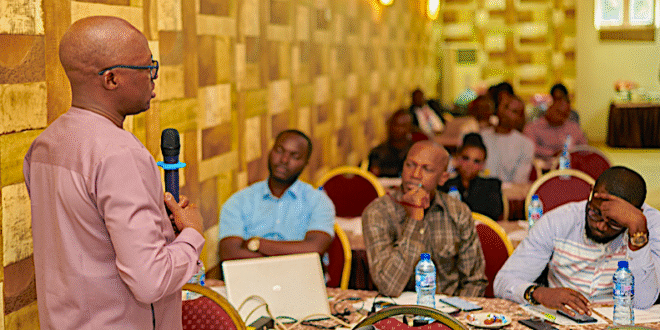Enhancing Regulatory Compliance for Civil Society Organizations in Nigeria
A global organization, “Global Rights,” has conducted a series of training sessions aimed at civil society organizations (CSOs) and non-profit groups. The initiative emphasizes the importance of adhering to existing laws and regulations to ensure that their operations run smoothly and effectively. This effort is described as a vital contribution to societal development.
The training took place on Tuesday in Calabar, supported by the European Union. The event focused on the theme: “Strengthening a Community of Practice to Improve CSO Regulatory Environment In Nigeria.” The program’s goal was to help CSOs understand and meet their legal obligations, which are essential for maintaining credibility and avoiding penalties.
Understanding the Importance of Compliance
The Program Manager of Global Rights, Edosa Oviawe, highlighted that many CSOs face challenges in maintaining their recognition and trustworthiness not because of poor performance, but due to inadequate compliance with regulatory requirements. He pointed out that some organizations register with the Corporate Affairs Commission (CAC) and then neglect their ongoing responsibilities.
Oviawe emphasized that registration with the CAC comes with specific obligations that must be fulfilled. He noted that the training aims to equip CSOs with the necessary knowledge to manage these responsibilities effectively, ensuring they do not face unnecessary obstacles or penalties.
He further explained that many CSOs start their activities before formal registration, often overlooking the obligations that come with being registered. This lack of awareness can lead to significant issues later on.
Legal Advice and Recommendations
During the event, Adekunle Adedeji, a Professor of Law and Senior Advocate of Nigeria, delivered a paper titled “Corporate and Allied Matters.” He advised CSOs to comply with all relevant regulations, including tax law, corporate governance law, money laundering law, and pension law. Adedeji stressed that ignorance of these laws is not an acceptable excuse in legal terms.
He also recommended that CSOs should begin filing annual returns immediately after incorporation, regardless of whether they are engaged in projects. Additionally, he urged them to appoint a compliance officer who can manage their schedules and ensure timely filings to avoid penalties.
Adedeji called on the government to provide incentives for NGOs to continue their impactful work, especially since they play a crucial role in supporting small and medium enterprises (SMEs).
Addressing Common Challenges
Prof. Adedeji also discussed some of the provisions that hinder CSO operations. He noted that some of these issues are self-induced, as the law applies equally to all organizations. He questioned how an organization could operate without a compliance schedule for over four years and expect to avoid fines.
Salisu Abubakar, the Assistant Director of the Corporate Affairs Commission, highlighted the seriousness of operating without proper registration. He urged participants to ensure they complete all registration processes and submit annual returns to various regulatory agencies.
Practical Steps for Compliance
Alfred Lortyaver provided guidance on the compliance process to avoid penalties. He outlined the initial steps, starting with obtaining a Tax Identification Number (TIN). The next step involves registering on the tax Promax site to begin filing and making payments. If the amount is too high, there is an option to pay in installments.
Essien Ansa from the Cross River State Internal Revenue Service emphasized the need for CSOs and NGOs to have visible contact addresses and a compliance officer. He stated that having a dedicated officer to handle filings, particularly annual returns, is more cost-effective than facing accumulated fines.
Participant Feedback and Future Outlook
One participant, Glory Ekpeazu, raised concerns about the high costs associated with registering and incorporating a CSO. She expressed hope that the government would address this issue to make the process more accessible.
Jeff Mangwei Chima commended the organizers of the program for their initiative. He encouraged participants to use the training effectively to enhance the activities of their NGOs.
Through these efforts, it is clear that improving regulatory compliance among CSOs is essential for their long-term success and continued contributions to society. By understanding and fulfilling their legal obligations, these organizations can better serve their communities and maintain their credibility.
 Info Malang Raya Its All About World News
Info Malang Raya Its All About World News




